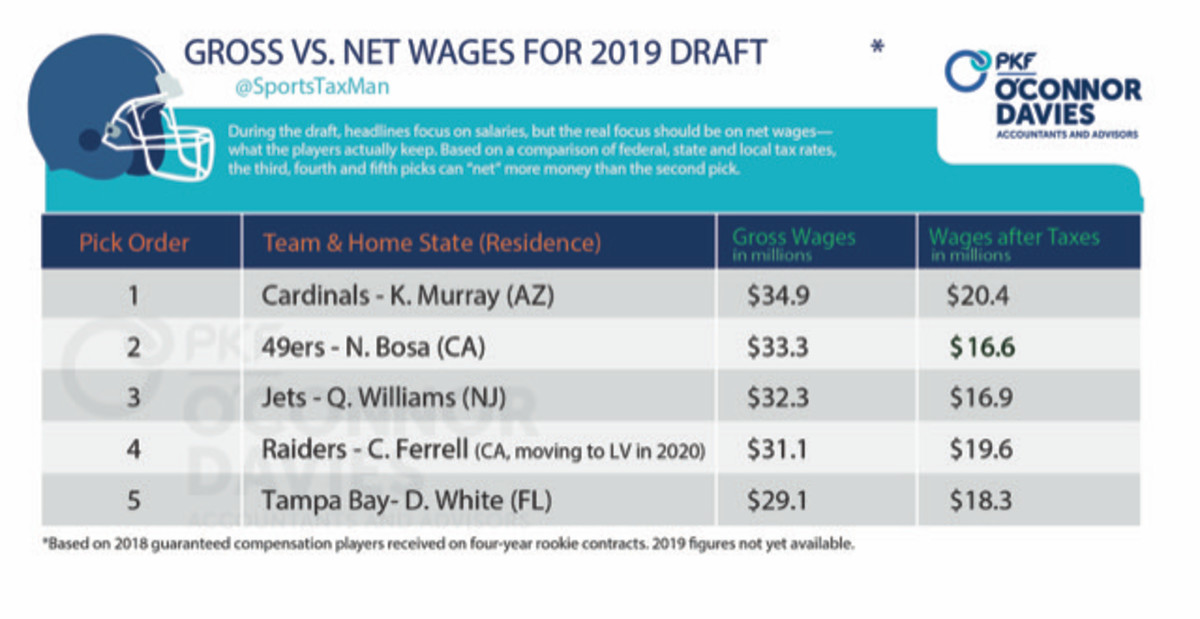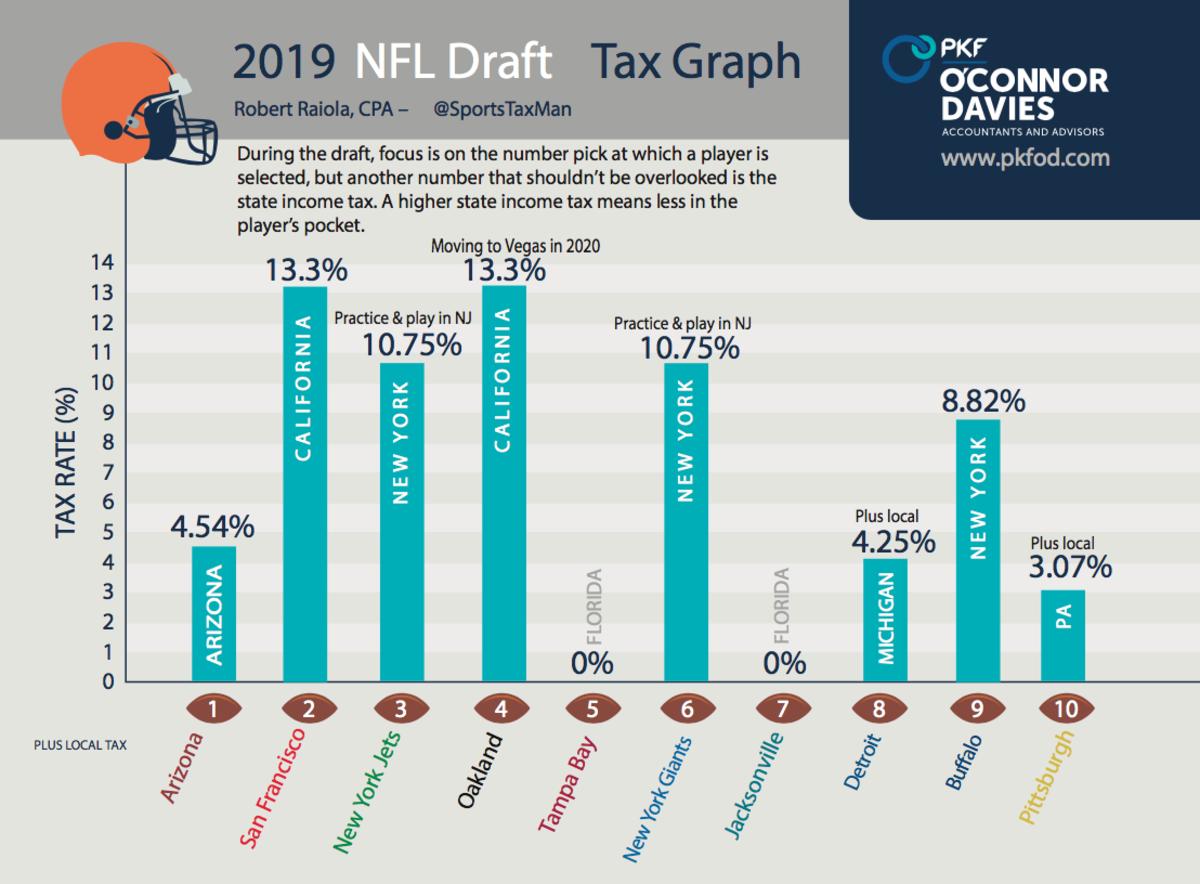How State Income Taxes and the Raiders' Move to Las Vegas Affect the NFL Draft

Barring any trades, the Oakland Raiders will pick fourth in the 2019 NFL draft. The player they select will join a franchise in some disarray. Over the last 16 seasons, the Raiders have had only one winning season while employing 10 different head coaches. Current head coach Jon Gruden and general manager Mike Mayock recently sent home their scouts, many of whom, Albert Breer reports, are expected to lose their jobs. Gruden and Mayock apparently couldn’t trust them. Meanwhile, the Raiders will play at least one more season in Oakland—the same city that is suing the team, claiming that it is part of an illegal “cartel” with the NFL—before relocating to Las Vegas, most likely by the start of the 2020 season.
It’s safe to say the player selected fourth isn’t joining the ideal situation to launch an NFL career. Still, it is an opportunity to play in the NFL. It is also a situation where smart financial planning could pay major financial dividends.
As we showed in our January 2017 column on the economic considerations of the Raiders’ pending move to Las Vegas, Raiders players, coaches and staff will experience a substantial increase in “net pay” by virtue of the move. Their salaries may not change, but they will nonetheless receive a de facto raise.
This is because their place of employment will change from the state with the highest personal income tax to one without a personal income tax at all. California has the nation’s highest marginal tax rate—13.3% on those who earn in excess of $1 million a year. Nevada, in sharp contrast, has no state income tax.
Raiders employees will also gain from a significantly lower cost of living in Las Vegas. According to CNN Money data, costs for housing (54% less expensive), utilities (19%), transportation (14%), groceries (10%) and health care (5%) are all substantially lower in Las Vegas than in Los Angeles. In short, strictly because of the franchise relocation, Raiders employees will become richer without getting a raise.
With that in mind, the agent for the player drafted fourth by the Raiders would advantage his or her client by capitalizing on the pending move. Indeed, the agent should attempt to structure their client’s rookie deal with the Las Vegas move specifically in mind. The agent could and—with the client’s consent—probably should demand that much of the contract’s guaranteed money be deferred to after the Raiders relocate. The move is expected to occur in 2020, depending on the completion of a stadium project in Las Vegas. This advice, of course, also applies to other players drafted this week by the Raiders, who have two additional first round picks (#24) and (#27) plus five others in the subsequent rounds.
Obviously, the player will want some money early in his Raiders career. But as Andrew Brandt has explained on The MMQB, teams and rookies sometimes negotiate deferrals. Teams, in fact, often prefer to defer payment, including for payroll and interest reasons.
Our calculations on projected earnings by players selected early in the 2019 NFL Draft reveal the significant role played by state income taxes.
Here's income tax rate by state of the first 10 picks:
(Both graphics now updated with actual draft picks.)

And here's the expected gross and net wages for the top five:

Notice the impact of relatively high-income taxes in California (13.3%) and New York (8.82%) on players’ earnings after taxes. These numbers are taken from rookie salaries corresponding to the NFL’s rookie wage scale for 2018. The 2019 figures are not yet available as they are contingent on the league’s salary cap calculation. Nonetheless, a basic point proves true: A player can take home more pay by being drafted later in the first round should his new team play in a state with no income tax or a lower income tax. If the teams in the top five all keep their own picks this year, waiting in the green room to be selected fourth or fifth—instead of getting plucked off the board second or third—might not be so bad.
Michael McCann is SI's legal analyst. He is also the Associate Dean for Academic Affairs at the University of New Hampshire School of Law.
Robert Raiola is the Director of the Sports & Entertainment Group of the CPA and Advisory Firm PKF O’Connor Davies.
• Question or comment? Email us at talkback@themmqb.com.
